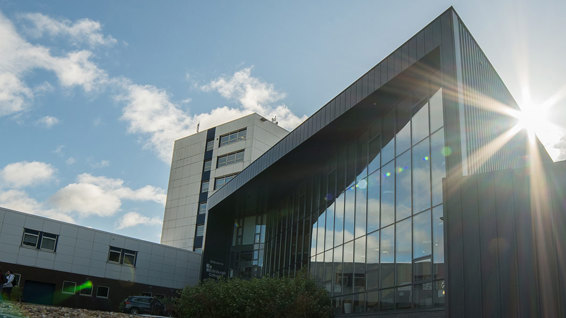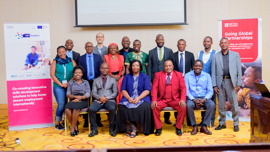Panama – Consultancy in Technical and Vocational Education and Training
In 2017, Edinburgh College partnered with Scotland’s Rural College to conduct research and write a report to assess the feasibility of developing a new agriculture-based technical institute in Panama (the Instituto Técnico Superior de Agropecuario (ITSA)).
The report focused specifically on the curriculum, instructor recruitment and supply of learners, and was based on research into the land-based industry and existing educational provision in Panama. The feasibility report sought to establish the vision and background to the ITSA and involved an in-depth labour market analysis to examine the current and future requirements of the land-based industries in Panama. Existing provision of land-based education in Panama was investigated, and combining this with the labour market analysis, led to recommendations on the future curriculum provision of the ITSA. The report also considered the supply of potential future students for the ITSA and the availability of instructors and trainers for the ITSA. A final strand to the report involved providing examples of current UK, and international, best practice in agriculture and land-based training which could be applied to Panama.
In carrying out this project, the project team conducted both quantitative and qualitative research to complement the information gathered through desk-based research. The research included questionnaires and surveys of land-based businesses, teachers, students and government representatives. This was augmented by in-country focus groups conducted in May and August 2017 together with significant engagement with the Ministry of Agricultural Development and the British Embassy in Panama.
In practice, the team’s initial research visit to Panama captured the key primary data required through a range of focus groups with government, industry, training providers and students, and also provided the opportunity to collect a range of confidential data from a number of students and teachers, without the time constraints of a focus group and without the concern of expressing their own opinion. This research was then combined with a significant desk-based review of existing knowledge and research around land-based education in Panama. The report made use of secondary evidence including official statistics, national datasets and other relevant publications that were able to provide an overview of the land-based sector in Panama, current employment levels, future changes in employment, workforce and business characteristics. Thereafter, a second, targeted primary research visit to Panama, was used to clarify and resolve areas where there were gaps in the existing information.
The report was completed and presented to the Ministry of Agricultural Development in May 2018.






